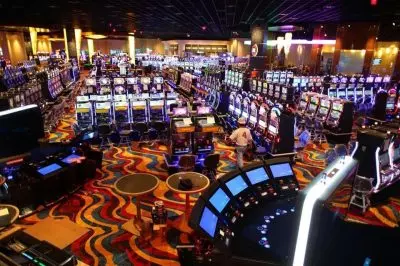 Researchers from the University of Massachusetts Amherst found that the introduction of casino gambling in the state has still not resulted in an increase of gambling addiction rates or rates of gambling-related harm.
Researchers from the University of Massachusetts Amherst found that the introduction of casino gambling in the state has still not resulted in an increase of gambling addiction rates or rates of gambling-related harm.
The results of the study were officially released on Thursday by researchers, who explained that the trend of decline in gambling addiction treatment admissions has continued, even after the state’s first casino – the slots parlor Plainridge Park – opened in 2015. In addition, no increase has been registered in overall personal bankruptcy filings, crime, child welfare cases, restraining orders and divorce rates across the state since casino gambling has been greenlighted.
The research, named “Social and Economic Impacts of Gambling in Massachusetts” (SEIGMA), was launched in 2013 to study the impacts of casino gambling on the local society and economy and is considered as the most thorough research attempt ever made in Massachusetts.
Apart from that, the study also found that the public has become more accepting of legal gambling operations in the state since 2015. As mentioned above, so far there has been little evidence of harm caused by gambling to state’s communities and economy. As revealed by the director of economic and public policy research at the UMass Donahue Institute, Mark Melnik, the main objective of the research was to provide an in-depth analysis of the aspects related to gambling expansion in Massachusetts and to provide more information to the public and policy makers about the emerging casino sector in the state.
Plainridge Park Casino Contributes Millions to State Coffers
 Apart from the fact that the research has found little evidence of casino gambling-related harm inflicted in Massachusetts, the Plainridge Park Casino, which has already been operating in the state of Massachusetts for years now, has contributed millions to the local economy through gambling tax revenue, employee salaries and payments to vendors.
Apart from the fact that the research has found little evidence of casino gambling-related harm inflicted in Massachusetts, the Plainridge Park Casino, which has already been operating in the state of Massachusetts for years now, has contributed millions to the local economy through gambling tax revenue, employee salaries and payments to vendors.
SEIGMA is based on data gathered up to July 2018. Since MGM opened its major Springfield-based casino resort a couple of months later, no data about MGM Springfield’s impact on the state and its residents have been included in the report. With the Springfield casino being in operation for about three months, and the Wynn Resorts’ Encore Boston Harbor gambling venue set to open in six months, there would be much more for researchers to study in terms of positive and negative impacts of casino gambling in the state.
The percentage of non-gamblers fell from 26% to 16% across the state, while recreational gamblers rate rose from 63% to 71%. On the other hand, the percentage of Massachusetts residents categorized as gambling addicts saw a very slight increase from 2% to 3%. When it comes to the communities around Plainridge Park, the percentage rates of non-gamblers, recreational gamblers and gambling addicts remained pretty much unchanged, amounting to approximately 19%, 70% and 2% respectively.
The research also found that reported crime at Plainridge Park has increased, especially in terms of fraud, suspicious activity, reported larcenies, traffic problems and lost property.